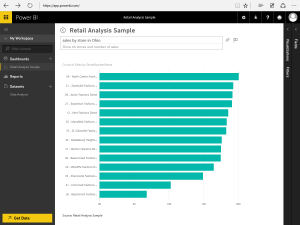Cortana Analytics has just been announced with much fanfare. Microsoft is promising a new era of business intelligence—one where users simply ask a question in natural language and instantly receive insights, forecasts, and dashboards in return. No need for technical know-how. No need to understand the data model. Just ask, and it shall be revealed.
It’s seductive. But it’s also dangerous.
What Cortana Analytics represents is not just a new feature—it’s part of a growing trend of natural language BI tools to oversimplify data work in the name of “accessibility”. And while making data more accessible is a worthy goal, doing so without addressing the underlying complexity of business intelligence can lead to poor decisions, false confidence, and ethical blind spots.
Simplicity That Ignores Complexity
Business intelligence is hard. It involves data modelling, dimensional hierarchies, time-based comparisons, and a deep understanding of both the business context and the data itself. The idea that one can bypass all this by simply typing “show me last year’s sales” risks reducing BI to a parlour trick.

The danger isn’t that the system gets the answer wrong. The danger is that it gives a correct answer to a poorly framed question—and presents it with the same authority. The nuance is lost. The user doesn’t know to question it. And so, decisions get made on sand.
Ambiguity by Design
Natural language is ambiguous. When someone asks for “revenue,” do they mean net? Gross? Bookings? Recognised income? Do they want it broken down by region, by product line, or by salesperson?
Cortana Analytics—and any tool like it—can’t possibly infer this without context. But users will assume it does. That’s the trap. It gives the illusion of understanding, when in fact it’s merely parsing syntax against a predefined model—often built by someone who’s long since left the organisation.
The Automation of Authority
There’s a psychological shift that occurs when a machine provides a recommendation or chart. It feels impartial. Clean. Intelligent.
But there’s nothing intelligent about automating bad assumptions.
As these tools get smarter in appearance, their decisions gain weight. A flawed query from a senior executive can be interpreted as gospel, not as guesswork. And when automation enters the picture—automated alerts, predictive forecasts, decision trees—the line between support and delegation becomes dangerously blurred.
Democratisation Without Education
Much has been said about the “democratisation of data.” Natural Language BI tools like Cortana Analytics are sold on the idea that anyone—regardless of role—should be able to interact with the data directly.
But this assumes that everyone has the same level of data literacy, critical thinking, and context awareness. They don’t.
There’s a world of difference between giving someone a dashboard and teaching them how to interpret it. When you remove the need to understand SQL, DAX, or even basic statistics, you don’t empower users—you risk misleading them.
Conclusion: Intelligence Requires Thought
Cortana Analytics, like many tools to come, will likely improve. But the real danger is not in its shortcomings—it’s in the expectations it creates. The promise that business intelligence can be reduced to a conversation is appealing, but ultimately naïve.
Real intelligence—human or artificial—requires more than just answers. It requires questions that are worth asking, data that is properly shaped, and people who understand what they’re looking at.
Until then, the illusion of simplicity will remain the most dangerous feature of all.
